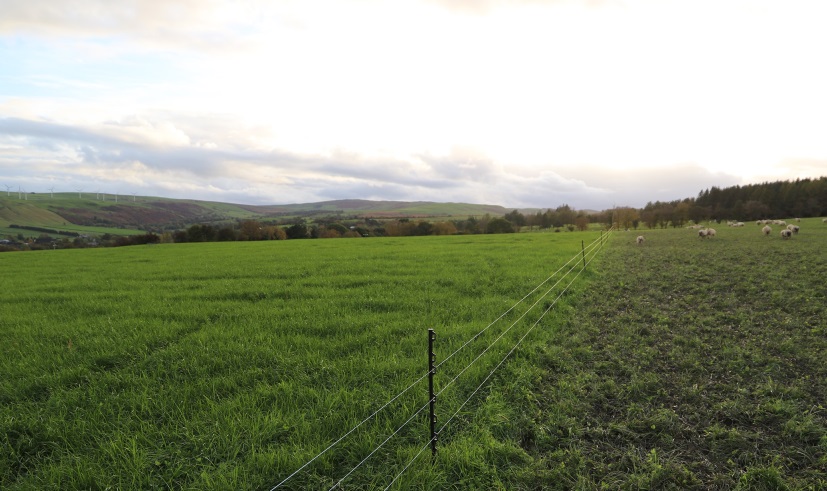
Lamb finishing times could be significantly shortened at a Powys livestock farm this autumn after red and white clover leys were established in the grazing rotation.
Fferm Awel y Grug, a farm near Welshpool, wants to minimise the volume of purchased feed it uses in its sheep and suckler beef enterprises, to reduce cost of production and to improve its environmental credentials.
It is part of Farming Connect's 'Our Farm' network, which includes 15 farms running trials and projects focusing on innovation and new technologies.
The network's goal is to help Welsh farms reach net zero by 2050, and to build both resilience and sustainability amid a changing climate.
Father and son Glyn and Chris Davies planted 12 acres of their 320-acre upland farm with red clover and ryegrass and another six with white clover and ryegrass, to compare performance.
Clover fixes substantial quantities of nitrogen, significantly increasing the feed value of home-grown forage and provides an opportunity to cut down the need for fertiliser.
Agriculture consultant James Holloway has provided expert input into the project, selecting the seed mixtures and providing a Soil Nutrient Management plan.
The leys were established in August 2023 with advice from James on their establishment and management.
Texel x Mule lambs have been rotationally grazing them this autumn to encourage tillering of the ley during the establishment phase of the project.
Clover is being trialled with the aim of providing a solution to the Davies’ achieving net zero within their business because reducing days to slaughter will cut levels of greenhouse gas emissions from the flock.
Improving soil health is another goal as the root distribution in clover reduces compaction and therefore improves soil structure and health and water infiltration and reduces run off.
Extending the grazing season by implementing a rotational grazing system is also an aim which will aid further carbon storage and sequestration at Fferm Awel y Grug.
And by reducing reliance on bought-in feed, the whole- farm carbon footprint will hopefully be reduced.
Data will be collated by Farming Connect to establish how well the lambs have performed on the clover and will be shared with farmers at an open day at the farm in 2024.
Next year, Chris hopes to get three cuts of silage from the red clover leys and two from the white clover pasture with the aim of reducing concentrates use in the sheep flock.
Independent sheep specialist Kate Phillips will analyse that silage and advise Chris on how he can cut down on concentrate use by incorporating this into the diet, while maintaining optimal nutrition for the ewes before lambing.
She has been analysing forage samples at Fferm Awel y Grug this autumn and formulating rations for this winter’s housing period.
The Our Farms project is being overseen by Owain Pugh, Farming Connect red meat sector officer for mid Wales.
“Owain’s input has been invaluable, he has really spurred us on with his enthusiasm and knowledge and in so doing we are making our business more efficient and sustainable," says Chris.
So confident is Chris in the ability of the red clover to provide stock with a sustainable and high quality protein source that he is aiming to establish another 10 acres next year.
Owain says it is now more important than ever that farmers grow as much protein as possible on-farm.
“Relying on buying in protein in the form of concentrate or meal exposes farm businesses to the threats of a volatile and fluctuating market," he says.
Red clover is considered a 'great option' for this: “While 70% of protein in grass can be lost in the rumen, the high levels of undegradable protein in red clover means livestock can make better use of that protein, improving efficiency."
Improving efficiency will be key moving forward, says Owain, to help livestock farming businesses thrive while also achieving net zero and other Sustainable Land Management objectives.
